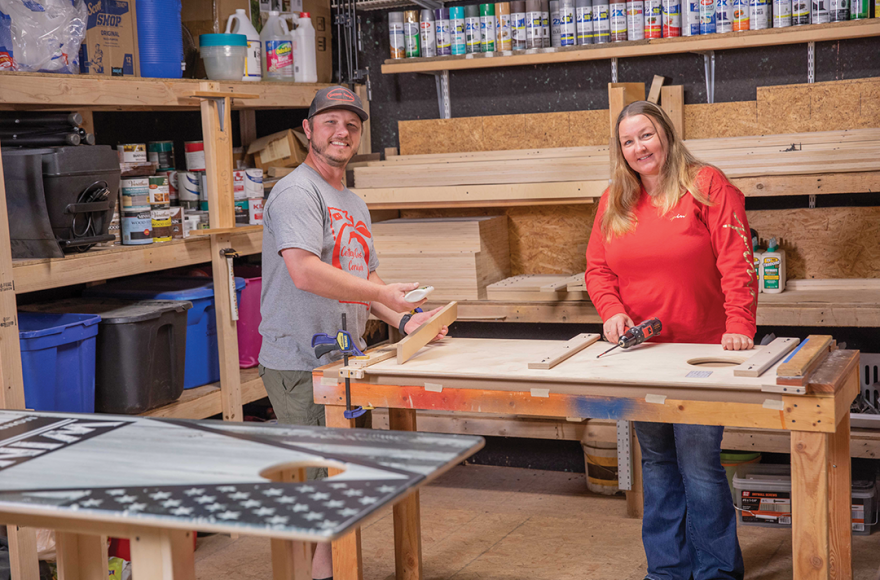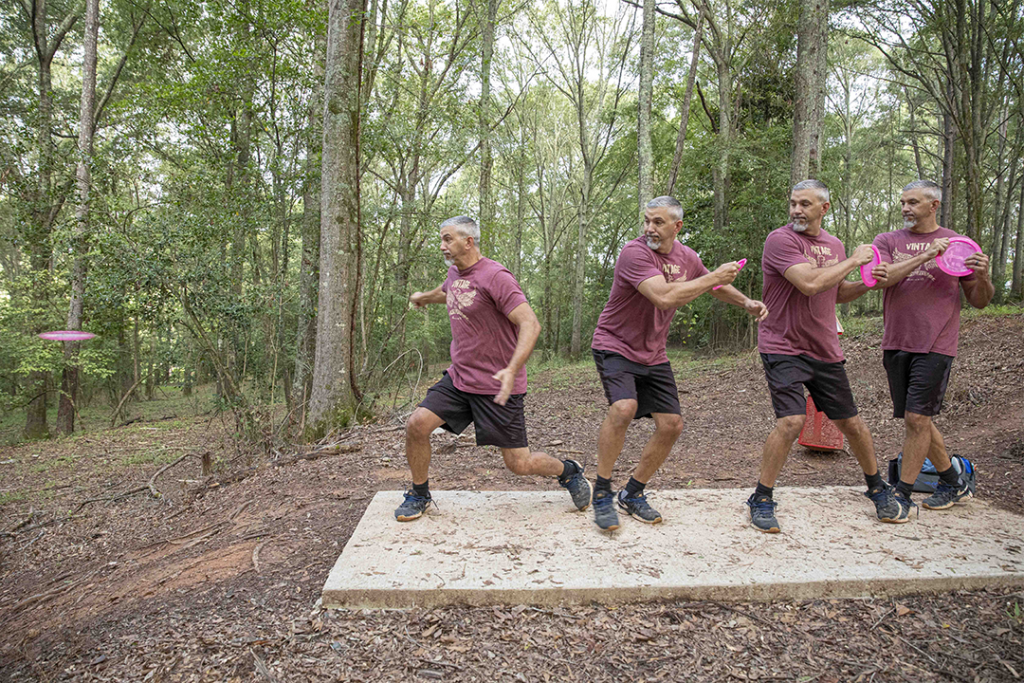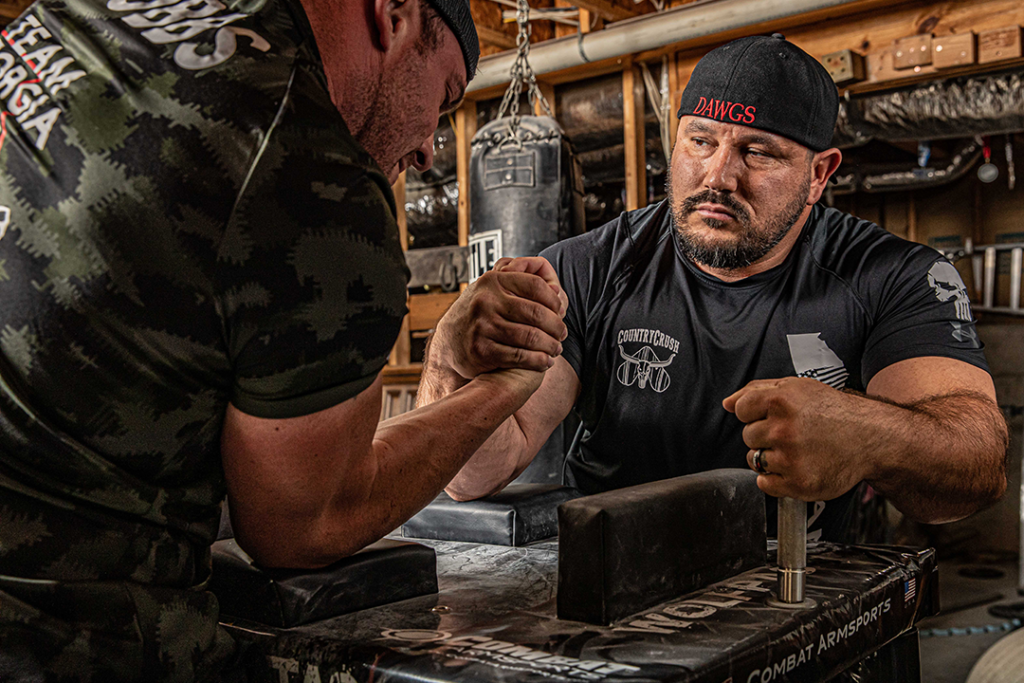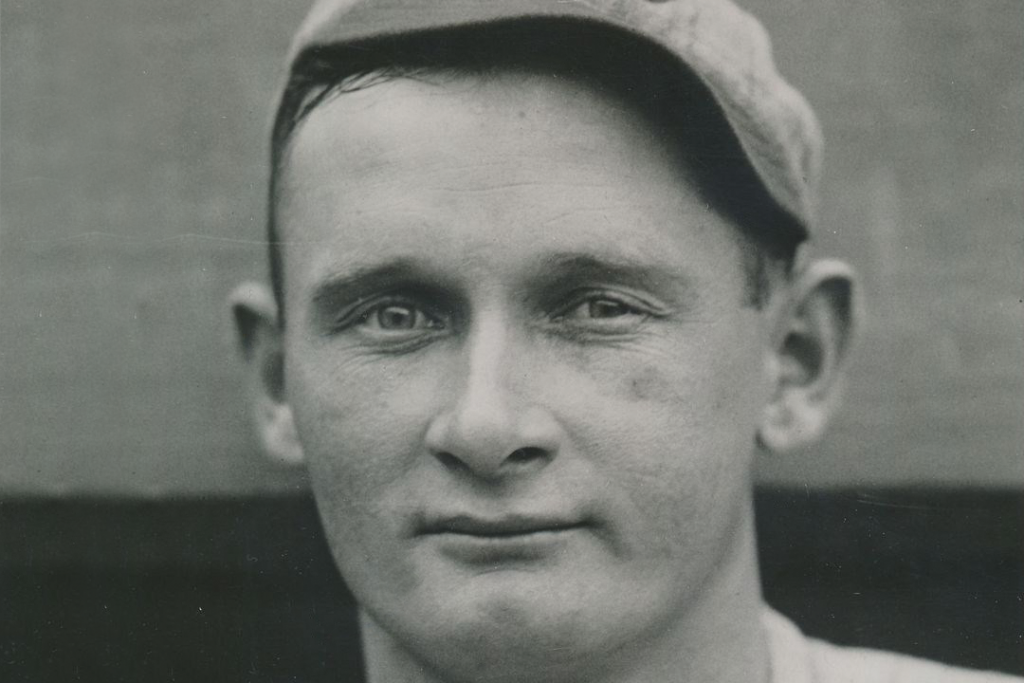As the popular lawn game spreads its tentacles far and wide, it draws in players of various ages, backgrounds and skill levels through its raw simplicity and the family-friendly competition it fosters. Some have managed to turn it into a successful business venture.
David Searle thought it was just a carefree way to pass time at backyard barbecues, family reunions and church homecomings. He never could have known where the journey would lead him the first time he tossed a one-pound beanbag at a stationary target situated some 30 feet away.
The roots of cornhole can be traced back to the late 19th century, but it did not show up in its current form until sometime in the 1980s. It evolved and grew in popularity over the ensuing decades, slowly adding terms like “blocker,” “hammer,” “hanger,” “hooker” and “jumper” to America’s already expansive competitive lexicon. Searle first encountered the popular lawn game at a family function. It was simple enough. Players took turns throwing 16-ounce fabric beanbags at a raised platform with a six-inch hole at its far end. A bag in the hole scored three points, while a bag that landed and remained on the board netted one. Play continued until a team or player reached or exceeded a total score of 21. Searle’s attention was soon drawn elsewhere.
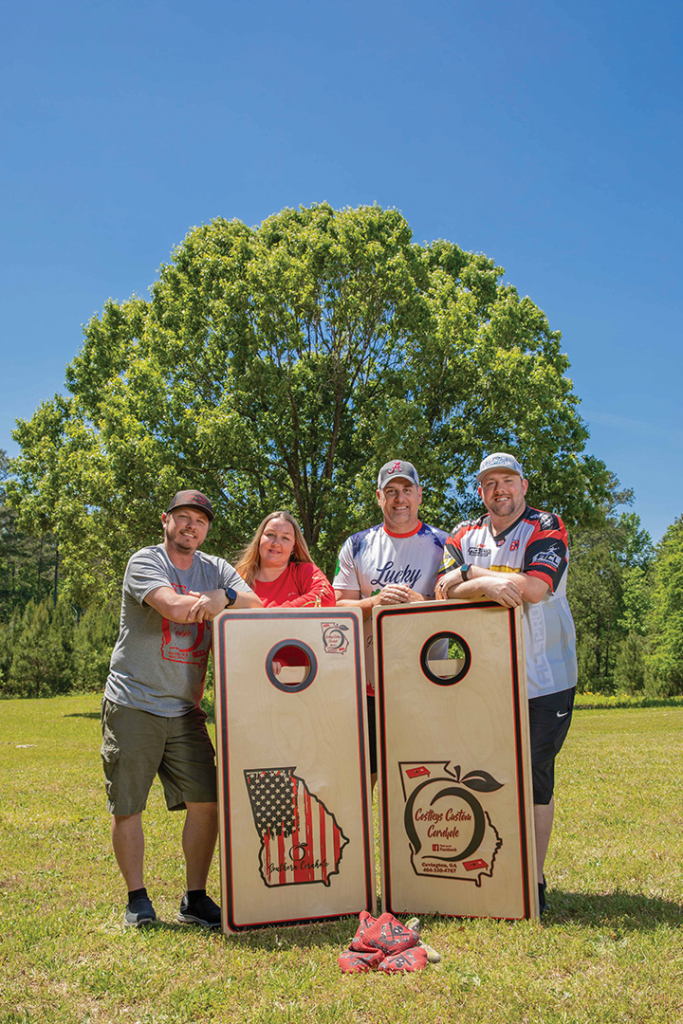
“I saw cornhole on ESPN,” he said. “They talked about it and said that anyone who wanted to play needed to find a local director, so I looked up directors, found one and started my journey to become a professional cornhole player.”
Searle eventually linked arms with the American Cornhole League, a national organization based in Rock Hill, South Carolina. He entered himself in tournaments, learned the lay of the land and started to reap the rewards of hours of practice and friendly competition. Each ACL season breaks down into local, regional, conference, state and open tournaments. The world championships take place every August at ACL headquarters. Searle competes in roughly 60 events each season, his travels having taken him everywhere from Las Vegas to Ventura, California, and Green Bay, Wisconsin. A single event can pay him as much as $1,000.
“When you mix playing a game you love with developing great friendships, it’s a win-win for everyone. Those players you see weekly become a part of your family.”
Scott Costley
The 35-year-old Searle—a married father of two who spends his days working for the inventory control management team at Becton Dickinson, the fourth-largest medical supply company on the planet—has finished as high as 83rd in the world in singles and as high as 54th in doubles. Jared Rutberg, a Newton County small business owner who flew Blackhawk helicopters for the United States Army, teams with Searle on occasion.
“I started playing competitively at the encouragement of a veteran’s support group,” Rutberg said. “Since I got pretty beat up in the Army, my body no longer allows me to do a lot of the activities I used to enjoy. Cornhole gives me an outlet where I can compete, challenge myself and make new friends.
“David keeps it fun at local events,” he added. “Whenever I get to play with him, he coaches me well. I need it. He has spent lots of time giving me feedback on a game or a particular shot, and a newer player like me really needs and appreciates that.”
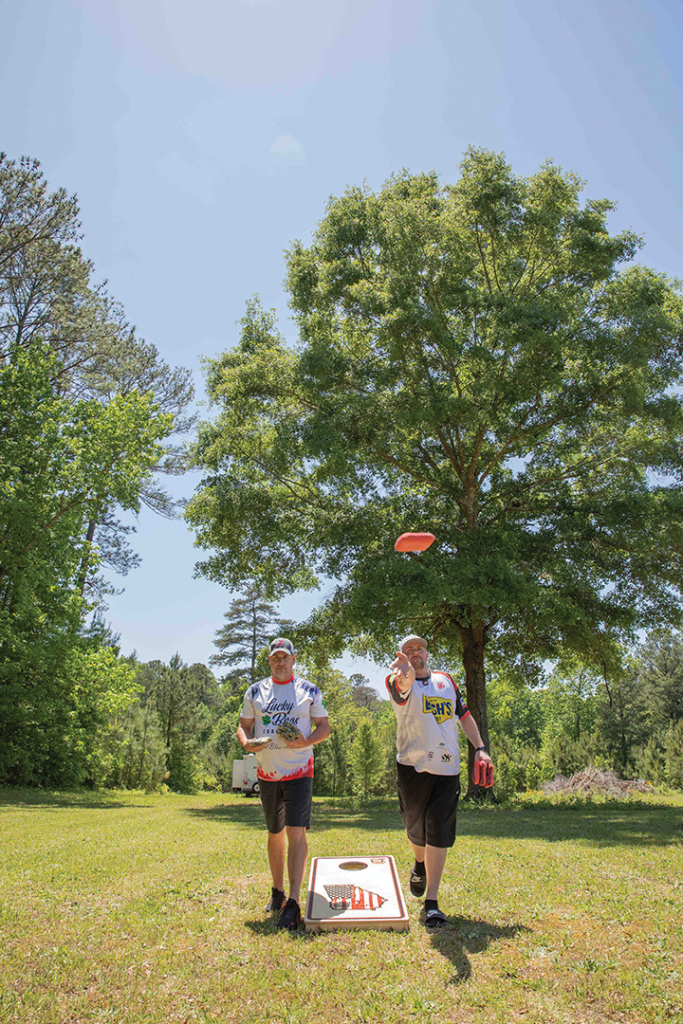
Another of Searle’s friends, Scott Costley, has turned cornhole into a lucrative business venture, albeit through other means. After he was introduced to the game, he was struck by an enterprising thought.
“Being a woodworker, I woke up the next morning, went to Home Depot, got the materials, built my own set and started playing almost daily,” Costley said. “The first set I built turned out pretty decent, so a couple of buddies started asking me to build them sets. It quickly turned into a board-building hobby, as well.”
Once Costley perfected the process, he and his girlfriend, Misty Cook, started directing local tournaments, which in turn led to the opportunity to build boards—he prefers to craft them out of high-quality Baltic birch—for leagues all over the Southeast. Costley’s Custom Cornhole was born. Graphic designs made by a professional printer provide the finishing touch and often add a collectible component to the boards. They have now built thousands of sets, each one requiring 45 minutes to an hour to complete. The company has filled orders from as far away as Washington.
“I have overseas inquiries occasionally,” Costley said. “It’ just not feasible to have them shipped due to the extremely high shipping costs.”
Costley and Cook organize weekly tournaments through the Southern Cornhole Group at Pocket Billiards and the Five O’Clock Sports Bar and Grill in Covington, providing their community with competitive outlets and avenues through which to build relationships.
“When you mix playing a game you love with developing great friendships, it’s a win-win for everyone,” said Costley, a 1998 graduate of Newton High School. “Those players you see weekly become a part of your family.”
For information on the American Cornhole League, visit iplaycornhole.com. Details on Costley’s Custom Cornhole can be found via the company’s Facebook page at facebook.com/scottcos22.
Click here to read more stories by Brian Knapp.

